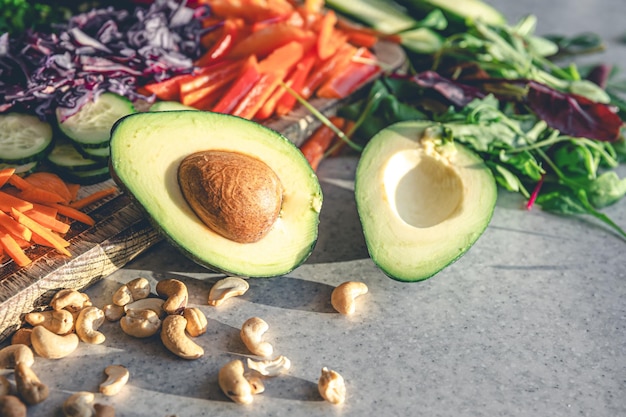Plant-based diets have long been praised for their potential to improve heart health, reduce cholesterol, and lower the risk of chronic diseases. From veganism to vegetarianism, many people have embraced these eating patterns in pursuit of a healthier lifestyle. However, new research is challenging the assumption that all plant-based diets are inherently beneficial for the heart. In fact, certain types may carry hidden risks.
The key finding from recent studies is that the quality of plant-based foods matters significantly. While diets rich in whole grains, legumes, nuts, fruits, and vegetables are linked to better cardiovascular outcomes, diets high in refined grains, sugary foods, and ultra-processed plant products may do more harm than good.
Researchers have begun distinguishing between healthy and unhealthy plant-based diets. A healthy plant-based diet emphasizes minimally processed, nutrient-dense plant foods. In contrast, an unhealthy plant-based diet includes items like white bread, pastries, chips, sweetened beverages, and plant-based meats loaded with sodium and preservatives.

Common processed plant-based foods may negatively impact heart health.
A large-scale study published in recent years followed thousands of participants over several decades, tracking their dietary patterns and cardiovascular outcomes. The results showed that individuals following an unhealthy plant-based diet had a significantly higher risk of developing heart disease compared to those consuming a balanced, whole-foods-based plant diet.
Specifically, diets high in refined carbohydrates and added sugars were associated with increased levels of triglycerides, insulin resistance, and inflammation—key contributors to atherosclerosis and heart attacks. Additionally, many processed plant-based alternatives, such as vegan sausages and cheese substitutes, contain high levels of sodium and saturated fats from coconut or palm oil, which can raise LDL ("bad") cholesterol.
One of the biggest concerns with modern plant-based eating is the rise of ultra-processed foods marketed as "vegan" or "plant-based." While these products may avoid animal ingredients, they often contain:
These ingredients can contribute to hypertension, weight gain, and metabolic syndrome—all of which increase cardiovascular risk. For example, a plant-based frozen meal may seem like a healthy choice, but if it contains 800mg of sodium and 15g of added sugar, it may be doing more harm than a moderately portioned, whole-foods-based omnivorous meal.

Many vegan convenience foods are highly processed and high in sodium and fats.
Heart-healthy eating isn’t just about avoiding animal products—it’s about what you replace them with. Diets rich in fiber, antioxidants, healthy fats (like those from avocados, nuts, and seeds), and phytonutrients support vascular function and reduce inflammation.
Unfortunately, many people transitioning to plant-based eating rely too heavily on convenience items and fail to incorporate enough whole, nutrient-dense foods. This imbalance can lead to nutritional deficiencies (such as B12, iron, or omega-3s) and suboptimal heart health outcomes.
This research doesn’t mean plant-based diets are bad for your heart. Rather, it highlights the importance of food quality. Choosing whole, minimally processed plant foods over packaged alternatives is crucial for reaping the cardiovascular benefits associated with plant-centric eating.
Experts recommend focusing on:
While plant-based diets can support heart health, not all versions are beneficial. The growing availability of ultra-processed, high-sodium, and high-sugar plant-based products means consumers must be vigilant about food choices. A diet based on whole, natural plant foods remains one of the best strategies for long-term cardiovascular wellness.
As with any dietary pattern, balance, variety, and quality are key. Before making major changes, it’s wise to consult with a healthcare provider or registered dietitian to ensure your diet supports your individual health goals.

Health

Health

Health

Health

Health

Health

Health

Health

Health

Health

Health

Health

Health

Fitness

Health

Health